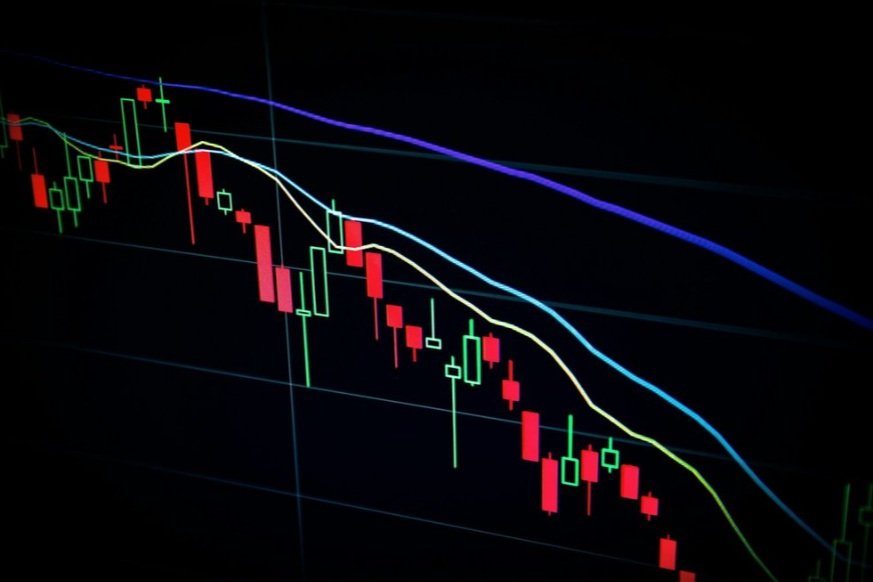
The Power of Coordination: Why Investments, Taxes, and Planning Should Work Together
When it comes to managing money, most people don’t make bad decisions, they make isolated ones.
An investment decision made without considering taxes.
A tax decision made without regard to long-term goals.
A retirement plan based on assumptions that quietly drift out of date.
Each decision may be reasonable on its own. But when financial choices are made in silos, inefficiencies tend to build over time, often without anyone realizing it.
True financial confidence isn’t created by a single strategy or product. It comes from coordination: ensuring that investments, taxes, and planning are aligned and working together toward the same objectives.

Is Now the Time to Work With a Financial Planner?
If you’ve been asking yourself whether to hire a financial planner, the short answer is: probably. The long answer is worth a few minutes of reading, because research shows professional advice delivers measurable benefits beyond picking funds.

Retirement’s Rising Costs: The Quiet Squeeze
Retirement today looks very different than it did for previous generations. Pensions that once provided steady monthly income are now rare, leaving most retirees to rely on a combination of Social Security, personal savings, and investment income. On the surface, that may seem perfectly sustainable—but the costs retirees face today are growing faster than the income sources meant to support them.

Staying Active After 60: A Key Investment in Your Retirement Years
When people think about preparing for a successful retirement, the focus often turns to investment portfolios, income strategies, and estate planning. While these financial steps are essential, there’s another investment that’s just as critical — and it can’t be measured in dollars: your physical health.

“It’s Gotta Be a CFP®”
Many people know October as Breast Cancer Awareness month, but it is also National Financial Planning Month, a built-in pause on the calendar to take stock of what’s working in your financial life and what isn’t. What areas are you excelling in and what opportunities might you be missing? According to the CFP® Board, it’s a natural time of year to focus on getting organized, especially ahead of year-end moves like tax planning, social security and benefits elections, and charitable giving.

When the Seasons Change, So Should Your Financial Plan
As summer fades and the crisp air of fall begins to settle in, many of us naturally think about change. The leaves turn, routines shift, and the year’s end suddenly feels closer than ever. Just as fall is a season of preparation—harvesting, storing, and getting ready for the winter ahead—it’s also an ideal time to pause and review your financial life.

Longevity Isn’t Luck—It’s a Lifestyle
As a financial advisor, I spend a lot of time helping clients plan for a retirement that could last 20, 30— even 40—years. But here’s the question: What good is a long life if it’s not a healthy one? We’re used to planning for “retirement income longevity,” but a deeper, richer conversation emerges when we shift the lens to something even more valuable: healthspan—the quality of life during those extra years.

Your 401(k) Could Be Changing—Here’s What Trump’s Order Means
Would you ever imagine holding cryptocurrency, private equity, or real estate inside your 401(k)? For decades, those kinds of investments were off-limits to the average retirement saver. But now, that possibility may be closer than you think.

Building a Retirement Portfolio: What Every Investor Should Know
In the years leading up to retirement, your investment strategy may have been focused on accumulation, maximizing growth, taking calculated risks, and riding out market volatility. But as you enter or approach retirement, the strategy must evolve. Now, it’s not just about growing your assets; it’s about preserving what you’ve built, generating income, and ensuring your portfolio supports a lifestyle that could last 25 to 30 years or more.
Whether you’re five years away from retirement or already there, building a durable and strategic retirement portfolio is essential. Here’s what every investor should know.

The 5 Biggest Retirement Mistakes You Can Still Avoid
Retirement is often thought of as the finish line—but in reality, it’s the beginning of a whole new chapter. After years of saving and investing, the decisions you make in retirement can have just as much impact on your financial security as the choices you made to get there.
And unfortunately, some of the most costly retirement mistakes happen after the paychecks stop.
Whether you’re a few years away from retirement or already living it, here are five common pitfalls to watch out for—and more importantly, how you can avoid them.

Diversifying Your Portfolio After Retirement
In the years leading up to retirement, you may have relied on the simplicity of target-date funds or asset allocation strategies designed to reduce risk as your retirement date approached. Now what? You’ve crossed that milestone—but retirement isn’t the finish line. You still have many years ahead, and you need your portfolio to perform well while continuing to manage risk. That’s where intentional diversification becomes critical.

The Debt Storm Ahead: How Rising U.S. Interest Payments Could Impact You
In the realm of personal finance and investment strategy, few forces are as powerful—and as underestimated—as the ripple effects of U.S. government debt. As of mid-2025, the national debt has surpassed $36 trillion, and while headlines often fixate on that staggering figure, the real threat lies not in the size of the debt, but in the growing cost to sustain it. If you're a retiree or an investor planning for the long term, the implications are enormous.

Why True Readiness for Retirement Goes Beyond Quitting Work
Retirement is often painted as the golden destination after decades of hard work—a well-earned reward marked by freedom, leisure, and the chance to finally relax. But while it may seem like the finish line of a long career, retirement isn't just about leaving the office behind. In fact, true readiness for retirement goes far beyond simply quitting work.

Mindful Spending: A Thoughtful Approach in an Uncertain Economy
In today’s culture, we are constantly prompted to act quickly with our money. Flash sales, "one-time offers," and same-day delivery all push us toward instant gratification. But now, more than ever, is a time to slow down and consider each financial decision with intention. Mindful spending isn’t just a trendy buzzword; it’s a vital strategy for navigating today’s volatile economic landscape.
With inflation still lingering, interest rates elevated, and many portfolios yet to fully rebound from recent market declines, the stakes are higher for those relying on investments to support their lifestyle. Whether you are retired, navigating a transition like widowhood or divorce, or simply adjusting to living on a single income, thoughtful financial decisions are your best defense against long-term instability.
Let’s explore what it really means to spend mindfully in the current economic environment—and how this practice can preserve both your financial health and peace of mind.

What to Do if You’re Retiring During a Down Market
Retirement is a major life milestone, ideally filled with the excitement of newfound freedom and the opportunity to enjoy the fruits of your labor. But retiring during a market downturn can stir anxiety. After decades of saving and investing, seeing your portfolio shrink just as you plan to tap into it is understandably nerve-wracking. Fortunately, there are several strategies you can employ to protect your finances and make your retirement more resilient—even in a turbulent market.

Master Retirement Spending: Craft Your Income & Expense Blueprint
Retirement isn’t just about saving—it’s about knowing how to spend wisely. After years of diligent saving, the challenge shifts to making that money last. A structured retirement income and expense plan is essential for ensuring long-term financial security. In this article, we’ll explore how to optimize income sources, manage expenses, build a realistic budget, and withdraw funds efficiently to maintain a comfortable lifestyle.

How to Prepare for Long-Term Care: Financial Strategies and Options
Planning for long-term care is a critical component of financial security, especially as life expectancy increases. With the rising cost of healthcare, preparing for potential long-term care expenses is essential to maintaining quality of life without depleting savings. This article explores key financial strategies, including long-term care insurance, Medicaid planning, and asset allocation, while also discussing the tax implications of these decisions.
